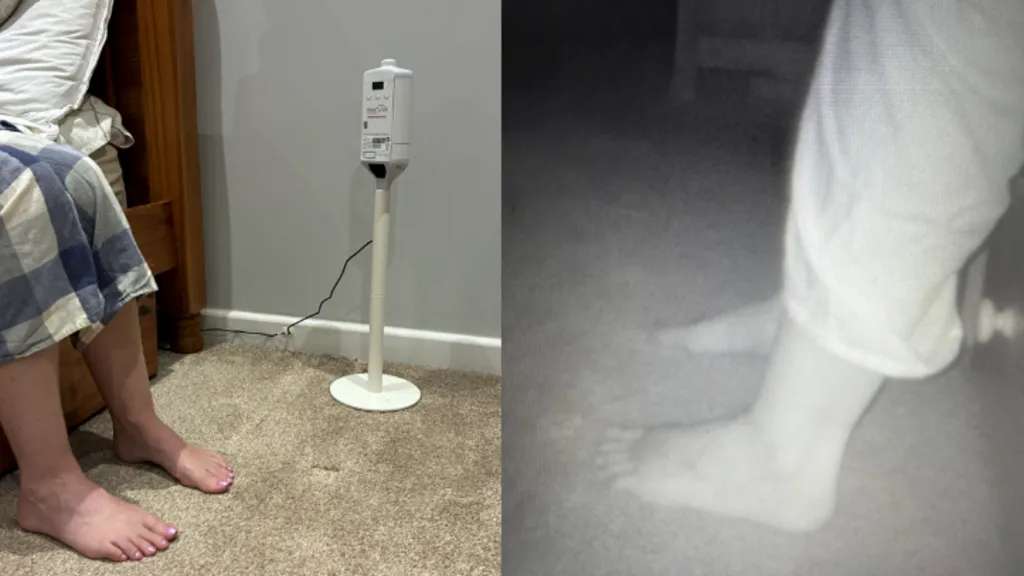An at-home 'foot-recognition' scanner could prevent heart failure hospitalisations, a study has found.
The National Institute for Health and Care Research, with the involvement of Torbay researchers, said the device could detect a build-up of fluid in the feet and ankles called oedema – one of the "big three' signs" heat failure was becoming severe.
The British Heart Foundation (BHF) said more than a million people in the UK had heart failure which could lead them to being hospitalised.
Dr Philip Keeling, senior author of the study and consultant cardiologist at Torbay and South Devon NHS Foundation Trust, said the scanner "keeps an eye on you and alerts the health failure nurse".
He said: "This device detects one of the big three warning signs for people with heart failure before they end up in hospital.
"Only about half of people admitted to hospital with heart failure currently get assigned an early review by a heart failure nurse who can check to see if they are suffering a harmful build-up of fluid because their heart is not working properly.
"Amid a shortage of heart failure nurses, a device like this can be like a virtual nurse, tracking people's health."
The device, created by Heartfelt Technologies, takes 1,800 pictures per minute of the foot and lower leg at multiple angles – using AI detection of their position and calculates the volume of fluid the feet contain.
The study examining the scanner involved 26 patients across five NHS trusts.
Among those who had the scanner in their home for at least two weeks before it triggered an alert, three people were hospitalised with heart failure.
The alerts came between eight and 19 days before their hospitalisation – giving the scanner an average prediction time of 13 days, which researchers said was adequate time to take action to keep someone out of hospital.
It also accurately predicted five out of the six hospitalisations and at the end of the six month study, 82% chose to keep the device.
